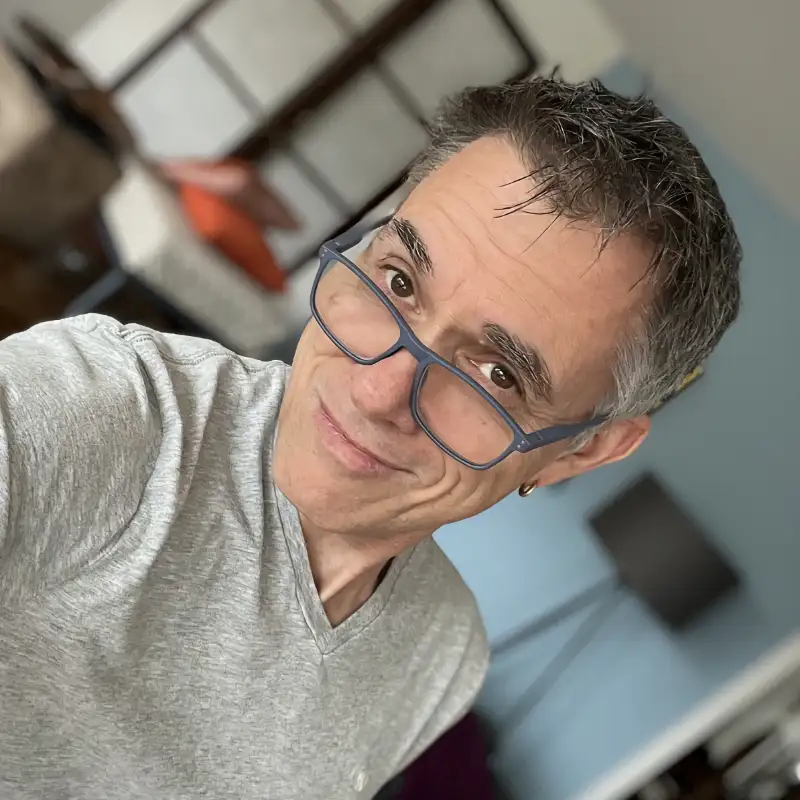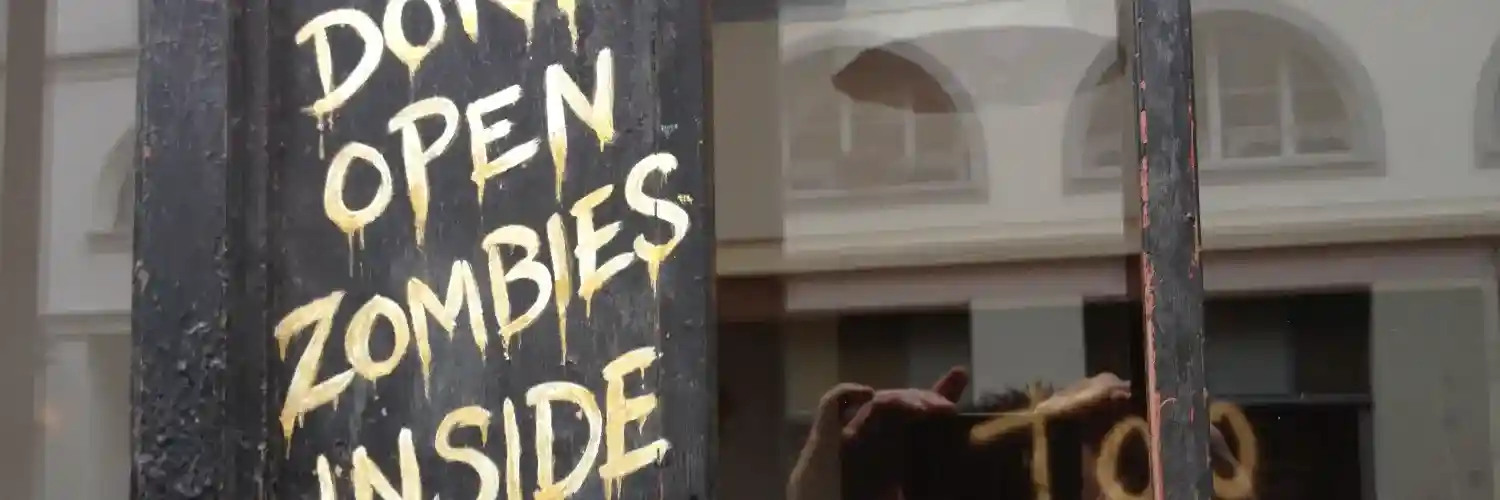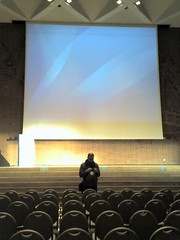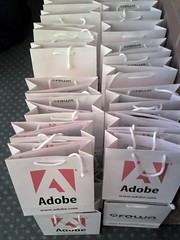After FoWA London 2007
Posted in thoughts
Tags :Heathrow Airport, gate 19, waiting to board the plane back to Geneva with Mathias and Enrique. The Future of Web Apps 2007 conference wrapped up yesterday for us as we didn't attend today's workshops.
I'm flying back with mixed feelings regarding this year's edition. The emphasis was definitively on the business aspects of webdesign and development. Day one was full of business models, plans, ventures, capitals and investments. Not really my cup of tea, and definitively not what I came for. As Jeremy Keith points out, this probably makes sense as Carson Systems organises the Future of Web Design in April. Unfortunately, I didn't realise this until the event itself (so much for me scanning, not reading my e-mail).
Day one
The afternoon sessions saved the day for me. I most enjoyed listening to Matthew Ogle and Anil Bawa Cavia (Last.fm), Bradley Horowitz (Yahoo!) and Kevin Rose (Digg). Learning about how Last.fm started and works, what their priorities and vision are was a rich experience. User attention tracking ("myware") yields very interesting data and results, and serves as building blocks for new features. Same with Yahoo! which I'm growing to like more and more as time goes by. Kevin Rose closed the day by talking about the history of Digg and the problems of hosting 900'000+ people in the same room. It was also nice to hear that Digg.com plans to support OpenID.
Day two
Day two really took off with many great presentations. My favorites were Khoi Vinh (NYTimes.com), Simon Willison on OpenID, Rasmus Lerdorf, and Richard Moross and Stefan Magdalinski (Moo.com). Simon's talk on OpenID was a real eye opener. This is probably the presentation I learned the most from. As many I suppose, I have an OpenID identity but never realised its potential. Khoi Vinh's intervention on user interface was brilliant. I can't imagine what challenge it must be to manage an information flows such as those the NYT is faced with. The community experience they are trying to build is fascinating. They certainly listen to their users. I would like to learn more about how they sync and manage the printed and online versions, manage the workflows in real time, what tools they use, etc. Meeting the inventor of the programming language I'm using for the last 10+ years, Rasmus Lerdorf, was a great experience too (and a scary one when he talked about security). These speakers know how to deliver a speech. They don't just read their slides. There is structure, semantics and vision behind them. A pleasure. Another highlight of the day was the MOO story. Lovely to see a web app turns out into a real world product. Long live print and the Royal Mail.
Afterthoughts
The absence of free wifi was a disappointment. We all logged onto BTOpenZone and the bandwidth faded away. I only managed to reconnect on day two. Overall, it probably costed me a fortune. Ryan Carson apologised, expressed his disappointment, but didn't manage to sort it out. Back in December, he posted an entry in his weblog on the good and the bad of providing wifi to conference attendees. I believe that an event such as FoWA should provide a robust wifi access, and that the attendees are responsible enough to know when and how to use it - or abuse it.
The distraction it creates for the attendees and speaker is often mentioned. It is important to remember that live blogging is about realtime coverage, not just posting whenever - like I do. I would like to see a public IRC channel published somewhere, or some sort of live poll, or question collector. Wifi or no wifi, I believe notepads will still be open, and their owners will still be typing, taking notes or whatever. Throughout the web conferences I've attended the last two years, I've seen a growing number of people live blogging or real time notes taking, wifi or no wifi. I'm not sure the distraction argument holds anymore.
I was a frustrated by the short time allocated to questions, and the lack of roaming microphones. It is a shame there wasn't more opportunities to interact with the speaker and that you had to walk up to the stage to ask your question. Multiple tracks might be the answer, but you can't clone yourself to attend both tracks, so there is a downside to both solutions.
I was surprised to see the sponsors give commercial presentations of there products and solutions on stage, and not be able to interact with them. Questions weren't allowed. It feels a waste to have Chris Wilson of Microsoft up on stage and not be able to ask questions. It's quite okay to have sponsors in the lobby demonstrating their solutions, or even in a side hall, but it always feels uncomfortable to mix them in the main stream of speakers. Don't get me wrong, I appreciated the speakers per se, but not so the way they appeared and the lack of public interaction.
I managed to catch up with Chris Wilson later on and asked him his feelings on Outlook 2007 HTML rendering issue: Word's engine takes care of both the composing and rendering, with a poorer CSS support than Outlook 2003. He said he was surprised when he heard the new and said that it would probably be fixed in the future, but when and how remain to be determined. He was happy they fixed the Ctrl+Enter issue (sending the mail instead of inserting a line break).
Whatever, it's always good to attend an event like this. You always come back a little richer than when you left. Especially when you share the good vibes with two good friends.
More FoWA London 2007 on Technorati in words, pictures or videos.
Presentation slides and podcasts
Most of the presentations are available as MP3 podcasts and PDF documents. You'll find them on the homepage of the Future of Web Apps website. Additionally, the podcasts are available as an RSS feed.





Comments and responses
25 Feb 2007
Hi David,
Thanks for coming all the way over to London for the event. I’m sorry (again) about the wifi. Because they didn’t turn on the ADSL on the lines, there was nothing we could do to fix the problem in time (trust me, heads are going to roll on this one!).
We’ll do a better job on the points you mentioned, so thanks for bringing them up.
Hope to see you next year!
Kind regards,
Ryan